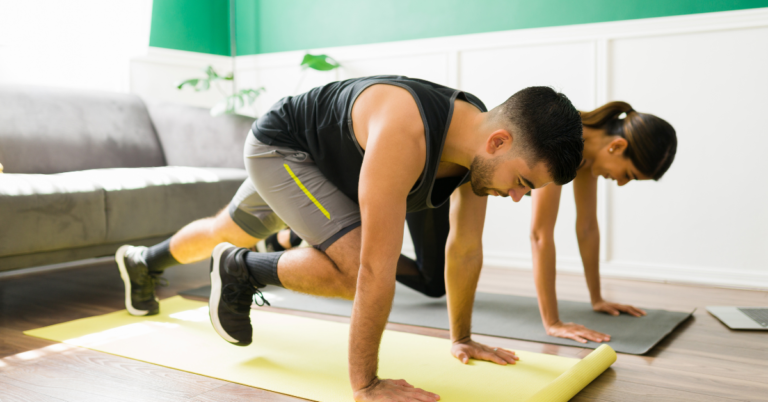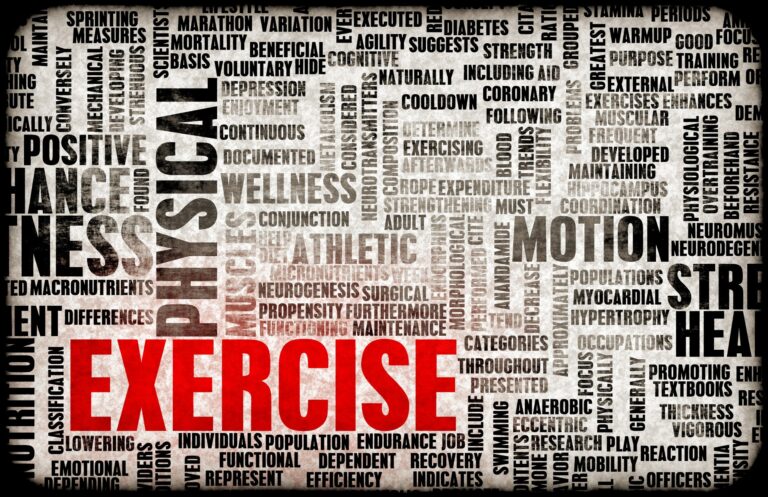Introduction
As the importance of maintaining a healthy lifestyle grows, it has become increasingly clear that mental health and physical fitness are inextricably linked. This is especially true for teen athletes who must balance the demands of school, sports, and social life. This article will explore the connection between mental health and physical fitness and why teenagers need to prioritize both.
A. Explanation of the connection between mental health and physical fitness
Mental health and physical fitness are closely intertwined. Studies have shown that regular exercise can positively impact mental health, reducing symptoms of anxiety and depression and improving overall mood. This is because exercise releases endorphins, the body’s natural feel-good chemicals, which can boost mood and reduce stress levels.
Conversely, poor mental health can harm physical fitness. When struggling with mental health issues, finding the motivation to exercise can be difficult, leading to a sedentary lifestyle and physical health problems.
Furthermore, mental and physical fitness are key components of overall health and well-being. Neglecting one can lead to negative consequences for the other, so prioritizing both is important to maintain a healthy balance.
B. Importance of balancing mental health and physical fitness for teens
For teens, balancing mental health and physical fitness is especially important. The demands of school and sports can be overwhelming, and without proper attention to both physical and mental health, teenagers may be at risk for burnout, injury, or poor performance.
In addition, teen athletes may face unique mental health challenges related to their sport, such as performance anxiety, pressure to succeed, and body image issues. By prioritizing mental health and physical fitness, teen athletes can better manage these challenges and achieve their full potential both on and off the field.
I. The Benefits of Exercise for Mental Health
Maintaining good physical health has always been considered important, but recent research has shown that exercise can have significant benefits for mental health as well. Engaging in regular physical activity has been shown to improve cognitive function, reduce stress and anxiety, and even alleviate symptoms of depression. In this section, we will discuss the positive effects of exercise on the brain and the importance of exercise for building resilience and coping skills.
A. Explanation of the Positive Effects of Exercise on the Brain
Exercise has been shown to have a positive impact on brain function and structure. Studies have found that exercise can improve memory, attention, and information processing speed, as well as increase the production of brain-derived neurotrophic factor (BDNF), a protein that promotes the growth and survival of neurons. Exercise has also been found to increase the volume of the hippocampus, a region of the brain involved in learning and memory.
B. Discussion of How Exercise Can Reduce Stress, Anxiety, and Depression
Exercise has long been recognized as an effective way to reduce stress and anxiety. Physical activity can help reduce the levels of stress hormones in the body, such as cortisol and adrenaline, and increase the production of endorphins, which are natural mood boosters. Exercise has also been shown to alleviate symptoms of depression. It can improve mood, increase energy levels, and promote feelings of well-being.
C. Importance of Exercise for Building Resilience and Coping Skills
In addition to reducing stress and anxiety, exercise can also help build resilience and coping skills. Regular exercise can increase feelings of self-efficacy, or the belief in one’s ability to overcome challenges. Exercise also provides an opportunity to practice mindfulness and relaxation techniques, which can be beneficial in managing stress and anxiety. Furthermore, the sense of accomplishment that comes with achieving fitness goals can help build confidence and resilience.
III. The Risks of Overtraining and Burnout
Many people believe that pushing themselves to their limits every day is the key to achieving their fitness goals. However, overtraining and burnout are real risks that can harm both physical and mental health. In this section, we will explore the dangers of overtraining and the signs of burnout, as well as the importance of taking breaks and rest days.
A. Explanation of the dangers of overtraining
Overtraining is a common problem among athletes and fitness enthusiasts. It occurs when the body is subjected to too much physical stress without enough time for recovery. This can lead to a number of negative consequences, including decreased performance, increased risk of injury, and a weakened immune system.
Additionally, overtraining can lead to a condition called “overtraining syndrome,” which is characterized by a range of symptoms including fatigue, insomnia, depression, and irritability. This condition can be difficult to diagnose and treat, and may require significant time off from exercise to fully recover.
B. Discussion of the signs of burnout and its negative effects
Burnout is a state of emotional, mental, and physical exhaustion caused by prolonged and excessive stress. In the context of fitness, burnout can occur when someone becomes too obsessed with their exercise routine, to the point where it takes over their life and negatively affects their relationships, work, and other areas of their life.
The signs of burnout can include decreased motivation, increased irritability, chronic fatigue, and even physical symptoms such as headaches and muscle pain. Left unchecked, burnout can have serious negative effects on both physical and mental health, and can even lead to a complete loss of interest in exercise altogether.
C. Importance of taking breaks and rest days
To avoid the risks of overtraining and burnout, it’s crucial to take regular breaks and rest days. These periods of rest allow the body to recover and repair, and can actually help improve performance in the long run.
IV. Strategies for Balancing Mental Health and Physical Fitness
Balancing mental health and physical fitness is crucial for maintaining overall wellness. Mental and physical health are interconnected, and neglecting one can lead to negative effects on the other. To achieve a healthy balance, it is essential to implement strategies that promote both mental and physical well-being.
A. Importance of setting realistic goals
Setting realistic goals is crucial in achieving a balance between mental health and physical fitness. Goals that are too ambitious or unattainable can lead to feelings of failure and discouragement, which can negatively impact mental health. It is important to set achievable goals that challenge but do not overwhelm you. For example, setting a goal to exercise for 30 minutes a day, three times a week is more achievable than committing to an hour of exercise every day.
B. Discussion of the benefits of mindfulness practices
Mindfulness practices such as meditation, yoga, and deep breathing can promote both mental and physical well-being. Mindfulness can help reduce stress, improve focus, and promote relaxation. Mindful exercises can also improve physical fitness by reducing muscle tension and increasing flexibility. Incorporating mindfulness practices into daily routines can provide a sense of calm and help manage stress levels.
C. Importance of building a support system
Building a support system is essential for maintaining both mental and physical well-being. Having a support system can provide encouragement, motivation, and accountability. Joining a fitness group or finding a workout buddy can help maintain motivation for physical fitness. Seeking support from friends or a therapist can help manage stress and anxiety and provide a safe space to discuss mental health concerns.
D. Tips for managing stress and anxiety
Stress and anxiety can negatively impact both mental and physical health. Managing stress and anxiety is essential for achieving a healthy balance. Some tips for managing stress and anxiety include practicing relaxation techniques such as deep breathing and meditation, engaging in physical activity, and setting boundaries to prioritize self-care. It is also important to identify and address any sources of stress or anxiety to prevent them from impacting overall wellness.
Conclusion
A. Recap of the importance of balancing mental health and physical fitness
The relationship between physical fitness and mental health is closely linked. Engaging in physical activity can boost mood, reduce stress and anxiety, and improve overall mental well-being. Similarly, taking care of one’s mental health can enhance physical performance and recovery and prevent injuries and burnout.
B. Encouragement for teen athletes to prioritize their mental health
Teen athletes face unique challenges that can impact their mental health. The pressure to perform, balance school and sports, and navigate social relationships can be overwhelming. Teen athletes must prioritize their mental health by seeking support from coaches, peers, or mental health professionals when needed, practicing self-care, and maintaining a healthy balance between sports and other activities.
C. Final thoughts and advice for maintaining a healthy balance between mind and body
Maintaining a healthy balance between mind and body requires intentional effort and self-awareness. It’s important to listen to your body and mind and to make adjustments when needed. This may mean taking a break from physical activity to focus on mental health or incorporating mindfulness practices into your routine to reduce stress and enhance mental clarity.
Remember, mental health and physical fitness are not separate entities but are closely intertwined. Prioritizing both can lead to a healthier, happier, and more fulfilling life.
About The Author
Gymate is a not for profit UK initiative to inspire teenagers, young people and anyone new to exercise to start exercising at home. If you have enjoyed this Blog, check out our other Blogs offering health and fitness advice. If you’re ready to start exercise Gymate workout pages are a good place to start. Looking for stylish active wear / athleisure wear? Our cross ownership company www.gymate-pro.com offers a wide range of Gymate branded active and everyday wear.
References:
- NHS. (2021). Mental health and exercise. Retrieved from https://www.nhs.uk/mental-health/self-help/guides-tools-and-activities/mental-health-and-exercise/
- Mind. (2021). Physical activity and your mental health. Retrieved from https://www.mind.org.uk/information-support/tips-for-everyday-living/physical-activity-and-your-mental-health/
- YoungMinds. (2021). Physical activity and mental health. Retrieved from https://youngminds.org.uk/find-help/looking-after-yourself/physical-activity-and-mental-health/
- Sport England. (2021). Mental health. Retrieved from https://www.sportengland.org/how-we-can-help/mental-health
- UK Coaching. (2021). Mental health. Retrieved from https://www.ukcoaching.org/resources/topics/mental-health
- Mental Health Foundation. (2021). Physical activity and mental health. Retrieved from https://www.mentalhealth.org.uk/publications/how-to-using-exercise
- Rethink Mental Illness. (2021). Exercise and mental health. Retrieved from https://www.rethink.org/advice-and-information/living-with-mental-illness/healthy-lifestyle/exercise-and-mental-health/
- The Mix. (2021). Exercise and mental health. Retrieved from https://www.themix.org.uk/mental-health/exercise-and-mental-health
- Young Scot. (2021). The benefits of exercise for mental health. Retrieved from https://young.scot/campaigns/national/mental-health/the-benefits-of-exercise-for-mental-health
- Mental Health UK. (2021). Get active for mental health. Retrieved from https://mentalhealth-uk.org/get-involved/get-active-for-mental-health/






